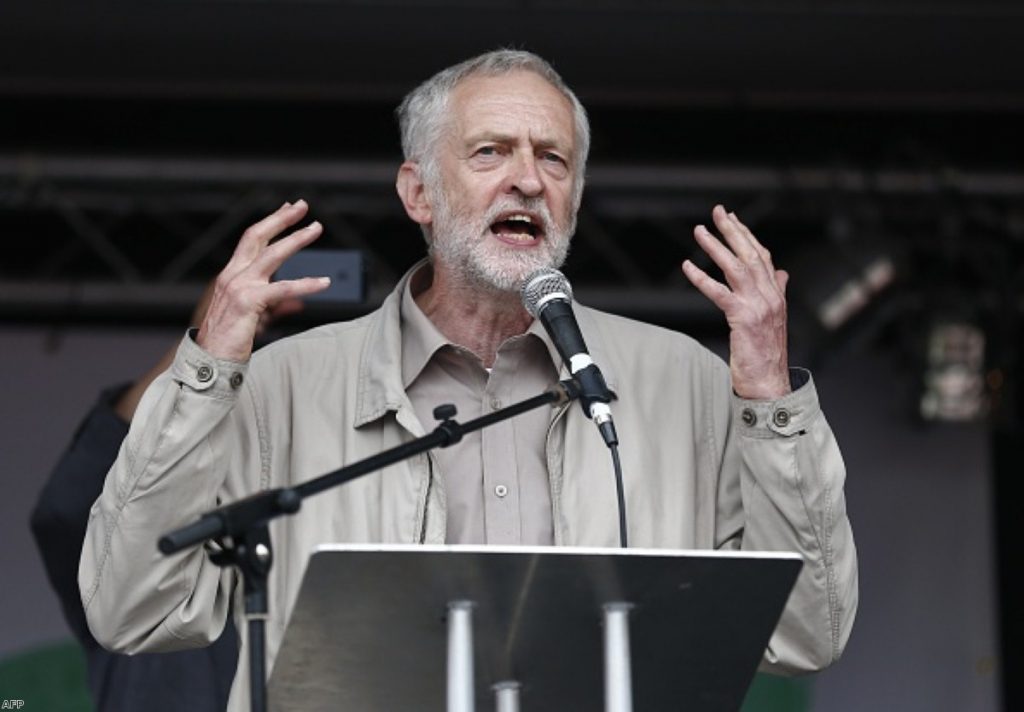If Jeremy Corbyn doesn’t deal with anti-Semitism claims, they will finish him
Nobody seriously believes Jeremy Corbyn is an anti-Semite. For all the furious digging by his opponents, no-one has found a single piece of evidence suggesting he has ever held racist views about Jewish people or anyone else.
Yet the allegations about Corbyn's links to anti-Semites refuse to go away. With the passing of almost every day comes yet more examples of his appearances alongside various figures with questionable views and pasts.
As the allegations have continued, the reaction of most Corbyn supporters has been to simply ignore it.
There are several possible reasons for this. Outside of parts of London and Manchester, anti-Semitism is not something that features in most people's everyday lives, simply because there aren't that many Jewish people to be anti-Semitic about. Growing up, as I did, in a London borough with almost no synagogues and where the Jewish population numbered in the hundreds, I struggle to think of even one occasion where I have heard someone make an anti-Semitic statement, whereas I have heard many people make racist comments about Muslim or black people over the years. For many non-Jewish people born in the post-war era, the problem of anti-Semitism was largely assumed to have been solved in the UK. Partly as a result of this, the claims against Corbyn are not treated as seriously as they would have been, had he appeared on the same stage as members of the National Front or the EDL.


Yet just because you don't personally see something, doesn't mean it isn't there. In fact anti-Semitism remains a real problem in the UK, with the Community Security Trust reporting that anti-Semitic incidents were at an all time high last year, with the rise of social media providing more platforms than ever for anti-Semitic bigots.
So far Corbyn's main response to the allegations against him has been to say that he is prepared to meet with people 'of all faiths and beliefs' in tackling the problems in the Middle East. This may well be true, but if you're a Jewish person who receives anti-Semitic comments on Twitter daily, or a worshipper who recently had a brick thrown through the window of their synagogue, Corbyn's explanation will provide little comfort.
The other response by Corbyn's supporters has been to dismiss the claims based on where they are coming from. The understandable suspicion of his backers is that attempts to ask questions about Corbyn's links to anti-Semites are attempts to smear him by association. In many ways this suspicion is well-founded. If Corbyn is elected, his associations with 'extreme' figures will be used repeatedly and mercilessly against him. Labour's opponents will try to plant the idea in voters' minds that Corbyn shares each and every view of every Islamic preacher, or far-left figure, he has ever sat beside. And these questions about his tolerance of people with anti-Semitic views will not just be restricted to the pages of the Jewish Chronicle. They will be on the front page of every Corbyn-opposing newspaper in the country (that's pretty much all of them by the way).
But when this happens – and it will – it will not be enough for his supporters to simply dismiss it as a "smear campaign by the right-wing press". Rightly or wrongly, Corbyn's reputation will be in the dirt before most voters even hear him speak. The battle to define him will be won by his opponents before it has even begun.
We know this because we have been here before. When Ken Livingstone's opponents sought to oust him from office as mayor of London, claims of links to anti-Semitic preachers were used as part of a wider campaign to portray him as a dangerous figure with dangerous views, who should be rejected in favour of the more unifying figure of Boris Johnson. Like now, Livingstone and his supporters went through the same stages of denial as Jeremy Corbyn has. At first the claims were ignored, then they were dismissed with a generic statement confirming his non-racism and then finally his supporters resorted to attacking the questioners as being part of the right-wing 'media smear machine'. And then, of course, Boris won.
The temptation for Corbyn is to also attempt to brush over these allegations. The fear among Ken's camp then, as among Corbyn's camp now, is that once you start engaging in these types of questions, you risk legitimising them and then facing a barrage of similar questions. This fear may be justifiable, but the alternative – of ignoring or dismissing the claims – is far worse. By taking this approach, not only do you amplify the questions, you also plant the idea in voters' minds that either the suggestions of anti-Semitic sympathies against you are true, or that you simply don't care about them.
The longer Corbyn goes without seriously tackling these questions, the greater the damage will be both to him and the Labour party.
Nobody seriously believes the MP for Islington North is an anti-Semite, but how he tackles these allegations is crucial to whether the British public ever see him as a credible leader. Either Corbyn deals with these questions now or, ultimately, they are going to deal with him.









